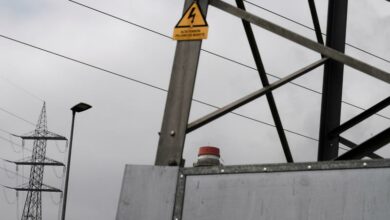Sri Lanka looks to Russia to alleviate fuel crisis

Colombo, Jul 7 (EFE).- Representatives of a Russian oil company arrived in Sri Lanka on Thursday to negotiate an agreement with the authorities of the island nation, which seeks to increase its scarce fuel reserves amid a crisis.
The acute fuel crisis in Sri Lanka has led the government to restrict its use for essential services only.
Two members of the oil company will meet Sri Lankan president Gotabaya Rajapaksa in the coming days, a spokesperson for the Sri Lankan energy ministry told EFE on condition of anonymity.
This visit comes a day after Rajapaksa asked his Russian counterpart, Vladimir Putin, for credit facilities to acquire crude oil during a conversation on the 65th anniversary of the start of diplomatic relations between the two countries.
“Had a very productive telecon with the #Russia President, Vladimir Putin. While thanking him for all the support extended by his gvt to overcome the challenges of the past, I requested an offer of credit support to import fuel,” the Sri Lankan president tweeted Wednesday.
Moreover, Rajapaksa said they agreed to strengthen “bilateral relations in sectors such as tourism, trade & culture,” and asked Putin to restart Aeroflot operations in Sri Lanka.
The Russian state-owned airline suspended its services in the island country in early June following a court dispute that caused one of its aircraft to be grounded for four days.
Russia is Sri Lanka’s second-largest tourism market and accounted for 8.7 percent of arrivals to the country in 2021, according to the Sri Lanka Tourism Development Authority.
These negotiations come amid the Ukraine war, which has triggered a wave of economic sanctions against Russia by the West.
Many of these sanctions are aimed at curbing Russian oil sales, to which Russia has reacted in recent months by seeking to diversify its markets in Asia, especially India and China.
Sri Lanka is facing its the worst economic crisis since independence from the British Empire in 1948, with shortages of medicine, food and fuel, caused in part by heavy indebtedness, misguided government policies, and the impact of the pandemic on tourism.
Limited fuel reserves led the government to cap restrict distribution to essential services last week, a move that has since paralyzed activity in the country and is scheduled to end on Jul.10.
Limited fuel reserves led the government to limit fuel distribution to essential services last week, a move that has since paralyzed activity in the country and is scheduled to end on 10 July.
At the same time, the island nation’s authorities are negotiating with the International Monetary Fund for a possible bailout, while they have also asked other countries, such as India, for help. EFE
aw-hbc/sc





